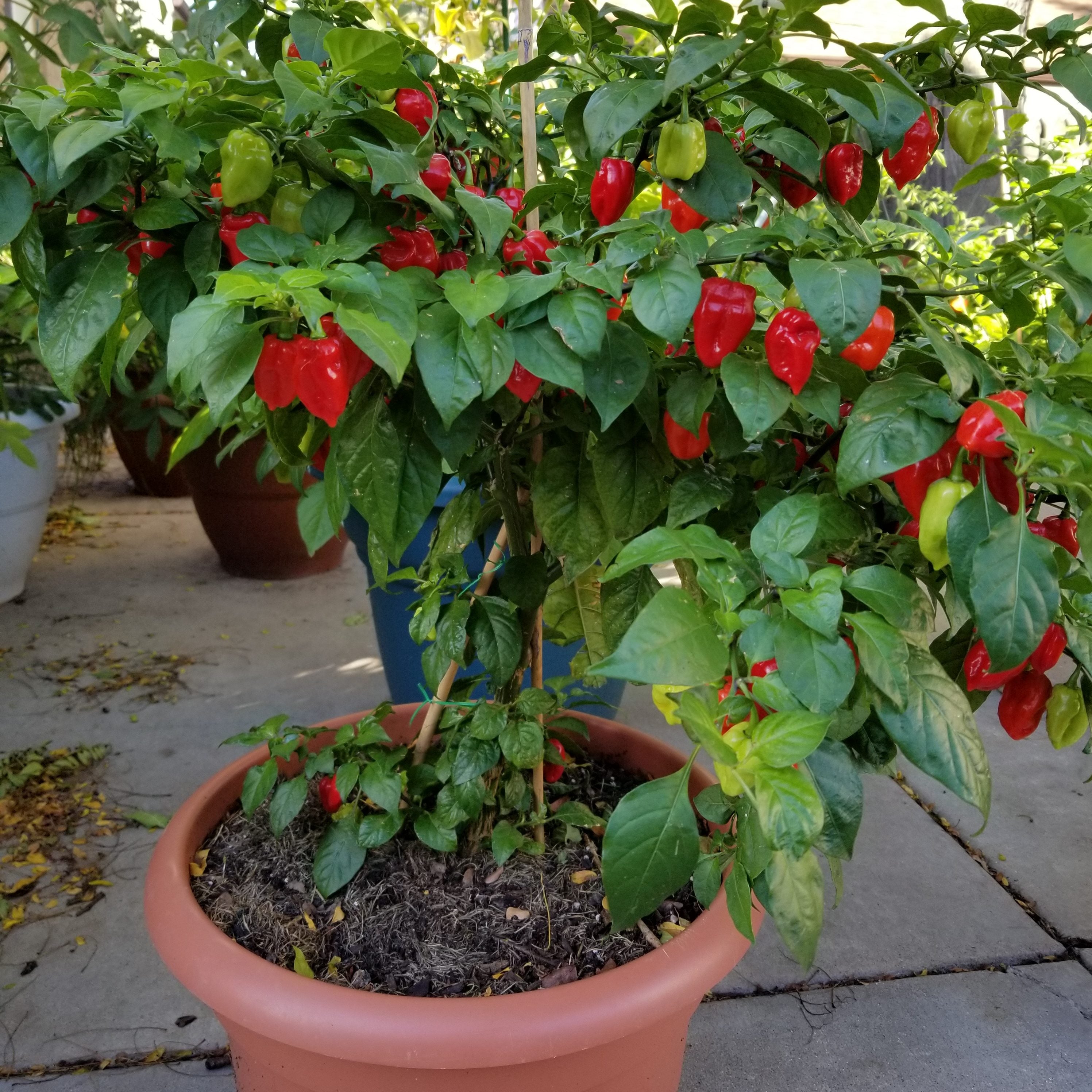Organic Vs. Synthetic Fertilizers: Which Is Best for Supporting Healthy Pepper Plants?
In the realm of nurturing healthy and balanced pepper plants, the selection in between artificial and natural plant foods stands as an essential decision with significant ramifications. While both choices objective to offer necessary nutrients to sustain plant growth, the subtleties of their impact on the dirt, plant health, and the atmosphere spark a dispute that mirrors throughout the gardening community. Recognizing the unique benefits and possible pitfalls of each fertilizer kind is essential for pepper growers seeking to enhance their returns while keeping an eco-conscious and sustainable strategy.
Benefits of Organic Plant Foods
Organic fertilizers provide an environmentally-friendly and lasting approach to nourishing pepper plants, offering necessary nutrients without the usage of synthetic chemicals. These all-natural plant foods are derived from organic sources such as garden compost, manure, bone dish, and seaweed, promoting soil health and biodiversity. Unlike synthetic plant foods, natural choices release nutrients slowly, guaranteeing a balanced and stable supply for pepper plants to thrive.
One significant benefit of natural fertilizers is their ability to improve dirt structure and water retention. By enhancing dirt health, natural fertilizers advertise helpful microbial activity, which assists in nutrient uptake by pepper plants. Furthermore, natural fertilizers reduce the threat of chemical run-off, shielding water resources from air pollution and protecting the environment.
Furthermore, organic plant foods add to lasting dirt fertility by advertising the development of beneficial dirt microorganisms. These organisms assist break down raw material, launching nutrients in a type that is quickly accessible to pepper plants. best fertilizers for peppers. By fostering a healthy and balanced soil environment, natural plant foods sustain lasting pepper growing techniques that profit both plants and the setting
Drawbacks of Synthetic Fertilizers
Artificial fertilizers, in contrast to their natural equivalents, position various negative aspects when made use of to nurture pepper plants, affecting both plant health and ecological sustainability. One significant disadvantage of synthetic plant foods is their propensity to leach nutrients from the soil quickly.
Moreover, the overuse of synthetic fertilizers can add to water pollution. Excess fertilizers not soaked up by plants can get rid of into water bodies, resulting in eutrophication, where algae blooms diminish oxygen degrees in the water, damaging marine life. In addition, artificial fertilizers are usually stemmed from non-renewable resources, such as nonrenewable fuel sources, adding to carbon discharges and environmental degradation throughout their manufacturing.
Nutrient Absorption Contrast
When contrasting organic and artificial plant foods in terms of nutrient absorption, organic fertilizers have the benefit of providing an extra balanced and click now slow-release resource of nutrients. Organic fertilizers consist of a range of macro and trace elements that are not only valuable for the plants however additionally promote healthy and balanced dirt microbial task, which aids in nutrient uptake.
Additionally, natural plant foods enhance soil structure and water retention ability, permitting pepper plants to gain access to nutrients extra successfully. This better dirt quality helps with root advancement, making it possible for far better nutrient absorption. Artificial plant foods, although initially increasing plant development as a result of their high nutrient focus, might hinder lasting nutrient absorption by degrading soil health and wellness over time.
Environmental Impact Factors To Consider

On the various other hand, artificial plant foods, although frequently more concentrated and instantly available to plants, can have destructive impacts on the atmosphere if not used appropriately (best fertilizers for peppers). Their manufacturing requires high power inputs, bring about greenhouse gas discharges and adding to environment modification. Furthermore, the runoff of excess synthetic plant foods can contaminate water resources, leading to eutrophication Full Article and damaging water communities.
Ideal Fertilizer Practices for Peppers
To achieve this, it is vital to adhere to best fertilizer methods tailored to the certain demands of pepper plants. One crucial method is to execute a dirt test before applying any type of plant foods.
Another essential method is to fertilize pepper plants at the correct time. Generally, peppers take advantage of obtaining plant food at planting and after that once more when they begin to flower. Over-fertilizing can lead to nutrition discrepancies and hurt the plants, so it is important to comply with suggested application rates.
Furthermore, selecting a balanced fertilizer with an NPK ratio that suits pepper plants' requirements is basic. Organic fertilizers, such as garden compost or manure, can be exceptional options as they release nutrients gradually and enhance dirt framework in time. However, artificial fertilizers can provide a fast nutrient boost when needed. Eventually, incorporating natural and artificial fertilizers sensibly can aid nurture healthy and balanced pepper plants while lessening ecological effect.
Conclusion

Organic plant foods offer an environmentally-friendly and sustainable strategy to beneficial pepper plants, providing vital nutrients without the usage of synthetic chemicals. Unlike artificial fertilizers, organic alternatives release nutrients gradually, ensuring a consistent and well balanced supply for pepper plants to flourish.
Artificial fertilizers, in comparison to their natural counterparts, pose different negative aspects when utilized to nurture pepper plants, impacting both plant health and wellness and ecological sustainability. When contrasting organic and artificial fertilizers in terms of nutrient absorption, organic plant foods have the advantage of supplying an extra balanced and slow-release resource of nutrients.Furthermore, organic fertilizers boost soil structure and water retention ability, enabling pepper plants to gain access to nutrients extra efficiently.
 Anna Chlumsky Then & Now!
Anna Chlumsky Then & Now! Barret Oliver Then & Now!
Barret Oliver Then & Now! Brian Bonsall Then & Now!
Brian Bonsall Then & Now! Hallie Eisenberg Then & Now!
Hallie Eisenberg Then & Now! Kerri Strug Then & Now!
Kerri Strug Then & Now!